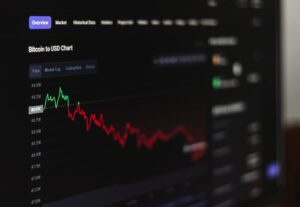The Impact of Time Zones on Forex Trading: When Does Forex Close
Forex trading is a global market that operates 24 hours a day, five days a week. However, the forex market does have specific trading hours that vary depending on the time zone. Understanding these time zones and their impact on forex trading is crucial for traders looking to optimize their trading strategies.
The forex market is divided into four major trading sessions: the Sydney session, the Tokyo session, the London session, and the New York session. Each of these sessions has its own opening and closing times, which are influenced by the time zones of the major financial centers around the world.
The Sydney session kicks off the trading day. It opens at 10:00 PM GMT (Greenwich Mean Time) and closes at 7:00 AM GMT. This session is relatively quiet compared to the others, as it overlaps with the end of the New York session and the start of the Tokyo session. Traders may see less volatility during this time and may focus on currencies related to the Australian dollar, such as AUD/USD.
The Tokyo session follows the Sydney session. It opens at 12:00 AM GMT and closes at 9:00 AM GMT. The Tokyo session is known for its high liquidity, as it coincides with the start of the business day in Japan. This session also overlaps with the London session, leading to increased trading activity and volatility. Traders may focus on currency pairs involving the Japanese yen, such as USD/JPY or EUR/JPY, during this session.
The London session is considered one of the most important trading sessions. It opens at 8:00 AM GMT and closes at 5:00 PM GMT. This session is known for its high trading volume and volatility, as it overlaps with both the Tokyo and New York sessions. Many major financial institutions are based in London, making it a significant hub for forex trading. Traders may focus on currency pairs involving the British pound, such as GBP/USD or EUR/GBP, during this session.
The New York session is the final major trading session of the day. It opens at 1:00 PM GMT and closes at 10:00 PM GMT. This session is known for its high liquidity, as it overlaps with the end of the London session. The New York session is also the most active session, as it involves the largest financial center in the world. Traders may focus on currency pairs involving the US dollar, such as EUR/USD or USD/CAD, during this session.
It’s important to note that while the forex market is open 24 hours a day, it does close on weekends. The market closes on Friday at 10:00 PM GMT and reopens on Sunday at 10:00 PM GMT. During the weekend, there is no trading activity, and traders may use this time to analyze the market, adjust their strategies, or take a break from trading.
The impact of time zones on forex trading goes beyond just the opening and closing times of the trading sessions. Traders must also consider the time differences between different financial centers and how they can affect market behavior. For example, when the London and New York sessions overlap, there is increased trading activity, which can lead to higher volatility and larger price movements.
Additionally, traders should take into account economic news releases and events that can impact specific currency pairs. These events are scheduled at specific times and can occur during any trading session. Traders need to be aware of these events and adjust their trading strategies accordingly.
In conclusion, understanding the impact of time zones on forex trading is essential for traders. The forex market operates 24 hours a day, five days a week, with different trading sessions overlapping at certain times. Traders should be aware of the opening and closing times of these sessions and the associated level of liquidity and volatility. By considering these factors, traders can optimize their trading strategies and take advantage of the opportunities presented by the global forex market.





